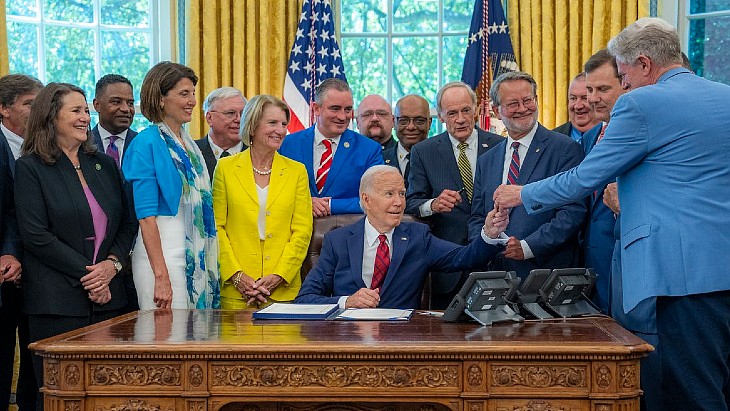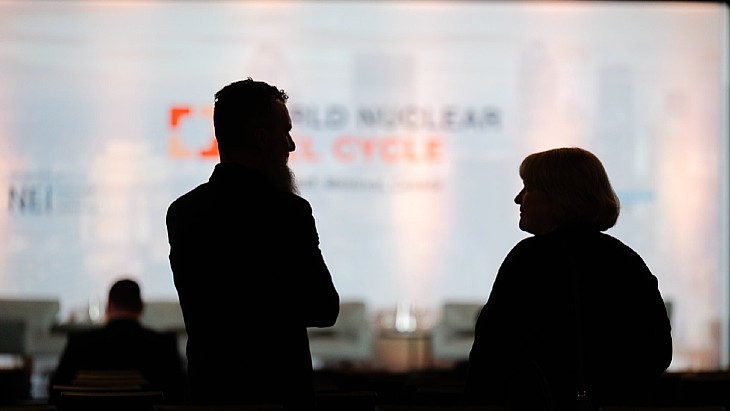More staff needed for Turkey Point licence review
.jpg)
Florida Power and Light (FPL) submitted its application to extend the operating lifetime of the two-unit Turkey Point nuclear power plant in January 2018. The application was accepted in April 2018 for detailed technical review by the NRC, with the regulator estimating it would take about 24,000 hours to perform its review on an 18-month schedule. The renewal would enable the plant to achieve an operating life of 80 years.
In a letter dated 15 August, NRC informed FPL that "several key milestones" have been completed but it has already exceeded the anticipated number of staffing hours. The regulator has therefore updated the estimated staff effort to complete the review, as well as modifying the environmental review schedule. The schedule for the issuance of the final Supplementary Environmental Impact Statement (SEIS) and US Environmental Protection Agency Federal Register Notice, previously scheduled for August 2018, are timetabled for October, but the NRC's scheduled date for a final decision - also in October - remains unchanged.
"Unique aspects of this first-of-a-kind subsequent licence renewal application review and a number of complex technical issues have resulted in additional staff effort beyond the original estimate," the NRC said. "The review has required approximately 28,000 hours, to date, and a few key milestones remain to be completed. These milestones include issuing the final SEIS, meeting with the ACRS [Advisory Committee on Reactor Safeguards] Full Committee, and issuing the subsequent renewed license."
The NRC estimates that it will take about 4000 additional hours to complete the remaining scheduled activities associated with the licensing action, not including any safety evaluations or EIS supplements which may be required as a result of hearing activities or changes arising during the hearing process.
The NRC identified several contributing factors that caused the estimated hours to be exceeded and resulted in the schedule changes. These included a federal government shutdown, which delayed the performance of reviews by the National Park Service, the provision of "new and pertinent" information by the National Park Service late in the development of the SEIS, and the receipt of substantial and complex comments, some of which needed to be addressed in the final SEIS.
Other contributing factors included the requirement for additional interactions between NRC and FPL staff to resolve "complex technical issues" associated with ageing management during the subsequent operation period - including irradiated structural steel reactor pressure vessel supports and concrete containment prestressed tendons - and to resolve corrective action concerns with the ageing management programme for buried and underground piping and tanks.
The NRC is authorised under the US Atomic Energy Act to issue licences for commercial power reactors to operate for up to 40 years. These can be renewed for an additional 20 years at a time for an operating lifetime of 60 years. Almost all of the USA's currently operating nuclear reactors have already renewed or applied to renew their operating licences, and the NRC and US operators are now turning to second - or 'subsequent' - 20-year licence renewals, which would authorise plants to operate beyond 60 years. As well as Turkey Point units 3 and 4 reactors, subsequent licence renewal applications have also been submitted for Peach Bottom units 2 and 3 and Surry units 1 and 2.
According to the NRC, the 40-year period chosen for original licences was based on economic and antitrust considerations, rather than limitations of nuclear technology. Regulatory guidance for subsequent licence renewals focuses on the management of plant ageing during the 60-80 year operating period and enhancements to existing AMPs implemented during the 40-60 year period, especially the effects of extended operation and high radiation exposure on reactor parts, concrete containment structures, piping and electrical cables, among other things.
Turkey Point 3 and 4 are 802 MWe (net) pressurised water reactors that have been in commercial operation since 1972 (unit 3) and 1973 (unit 4).










_50521.jpg)

